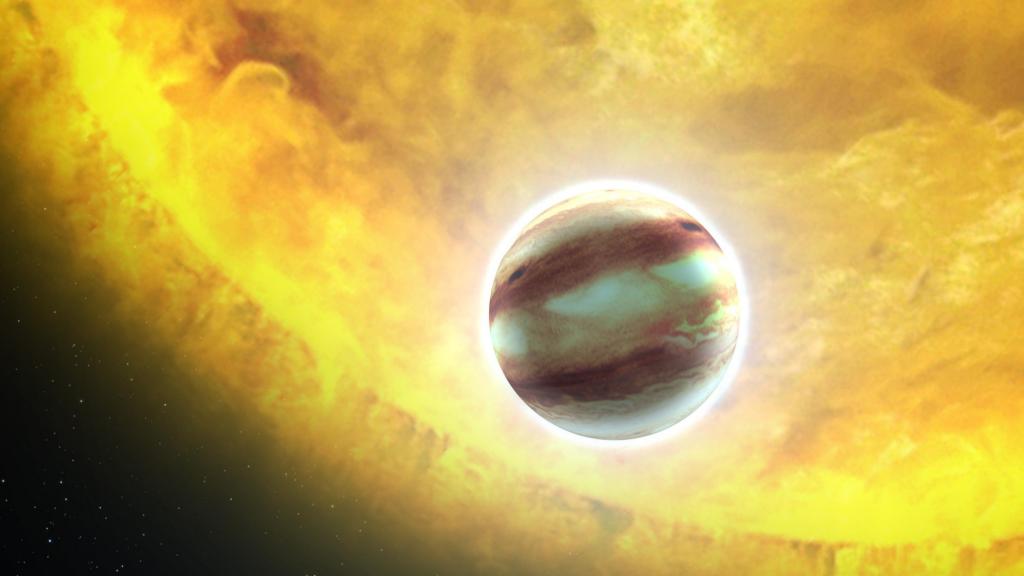|
Olivia is a grade 6 student from Calgary and she asked... What is a Hot Jupiter? When extrasolar planets first started to be discovered, about 20 years ago, calculations showed that many of them were big, like Jupiter. However, unlike Jupiter, these planets were orbiting extremely close to their stars and for that reason they were really hot. Several of these Jupiter-sized extrasolar planets were discovered early on and soon they formed a distinct category within the larger family of extrasolar planets. This category, or subclass, as astronomers refer to it, became known as the "Hot Jupiters" and that term is used to describe any Jupiter-sized extrasolar planet that is really hot, due to its close proximity to its parent star. An artist impression of a "Hot Jupiter" extrasolar planet orbiting its parent star.
0 Comments
Your comment will be posted after it is approved.
Leave a Reply. |
About MeThis blog is written by James Durbano. Currently, I am the Director of the Big Sky Observatory and I'm also the owner and operator of the awesome AstroDome Planetarium. Archives
January 2016
Categories |


 RSS Feed
RSS Feed